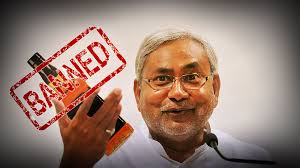Patna: Bihar Chief Minister Nitish Kumar has ducked the question of Uniform Civil Code. He has refused to tender his government’s opinion in response to a questionnaire sent by the Law Commission on the Uniform Civil Code (UCC). He said the questions asked as “leading” and framed in a manner to “force the respondent to reply in a specific way.”
In a letter to the Law Commission Chairman Justice B S Chauhan, Kumar cautioned against making any hasty decision on the UCC. He fears that the imposition of UCC it would lead to “social discord and erosion of faith in the Constitutional guarantee of freedom of religion”.
He also expressed inability of his government to form an opinion on the proposed UCC in the absence of any “specific or concrete” information about its contours.
“It seems that the questions have been framed in such a manner so as to force the respondent to reply in a specific way. These are leading questions with a limited number of choices given as probable answers and thus denying the respondent enough scope to frame his own independent replies,” Kumar wrote in his letter.
“The details of the proposed Uniform Civil Code (UCC) have not been shared so far with the stakeholders for their comments. In the absence of any specific or concrete information about the contours of the UCC proposed by the central government, it will not be possible to form any opinion on the same,” he said.
The state cabinet had on January 10 given its approval to the letter to be sent to the law panel.
Cautioning the Law Commission not to “hasten” the implementation of the UCC, the Chief Minister said,”Ours is a nation based on a delicate balance in respect of laws and governing principles for different religions and ethnic groups.
“In any case, imposition of the UCC without forming a consensus among the various religious groups, especially the minorities, will create a situation of social discord and lead to erosion of faith in the Constitutional guarantee of freedom of religion.”
Though Article 44 of the Constitution says that the state shall endeavour to provide for its citizens a UCC, but “the makers of the Constitution had thought of a UCC as something which may be feasible in the long run with consensus of all the stakeholders”, the chief minister wrote.


